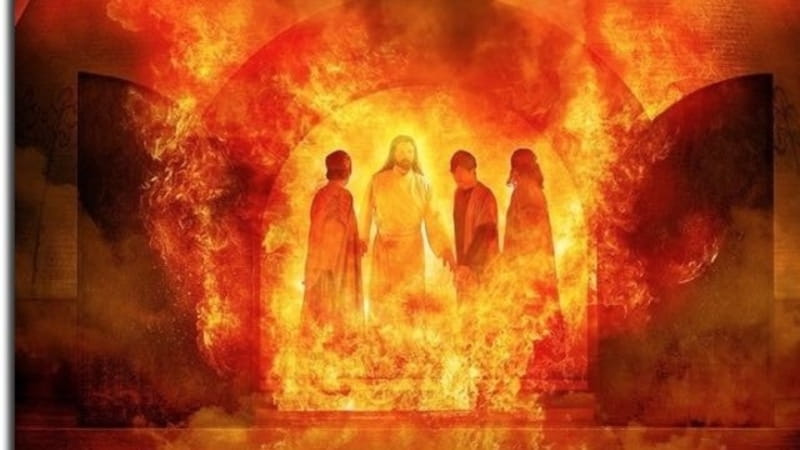
Theme: Forgive others so that God may not invalidate his forgiveness.
Scripture reading: Dan. 3:25, 34-43; Ps. 4-6, 7-6; Mt. 18:21-35
The book of Daniel depicts the Israelites as captives in the land of Babylon. Daniel and his companion being the wise in the kingdom of King Nebuchanezar were asked to interpret the dream. When Daniel ably interpreted the dream (Dan. 2:24-45), he was made the ruler over the province of Babylon. Daniel also got favours for Shadrach, Meshach and Abednego, the fellow Jews. They were appointed over the affairs of the province of Babylon.
Later the king erected a golden statue and asked all the officials in his kingdom to bow down and worship. The Chaldeans informed King that Shadrach, Meshach and Abednego did not bow down to the statue. The king ordered them to bow down but they refused to do it. The king was filled with rage and ordered to put them in the furnace which was heated up seven times more than was customary. It was so fiery that the men who lifted these three Jews were killed by the heat. Abednego who was called Azariah prayed in the midst of the flames, sang hymns to God and bless the Lord. He prayed with humility. The following component were found in his prayer. Therefore, his prayer was effective. He accepted their sinfulness. He accepted their present state of nothingness in the world due to their sinfulness. He also acknowledged that they were not able to offer sacrifices, burnt offerings, oblation, incense to find mercy of God. But he believed that he had contrite heart and humble spirit that would be acceptable by God. His was heart was ready to follow the Lord. It is a genuine prayer in the middle of the furnace.
In the Gospel, St. Peter questioned Jesus about the forgiveness. Peter thought that to forgive seven times was an extravagant generosity in forgiveness. It echoed the promise of God to Cain after the killing of Abel. God had said to Cain for his protection, “whoever kills you will suffer a seven-fold vengeance” (Gen. 4:15). Jesus responded to Peter far beyond his proposal. The expression seventy times seven means forgiveness is uncountable. It means to say whoever counts has not really forgiven at all. Jesus called to forgive beyond calculation.
In the parable of ‘unforgiving servant’, Jesus gives a fact of debt of a servant who was forgiven by the king was beyond calculation. The debt of ten thousand talents means 20.4 kg silver or 6000 drachmas or manual labour of fifteen years. All the tax income of Harod the Great’s territories was 900 talents per year. The taxes of Syria, Judea, Samaria and Pheonicia would be lesser than ten thousand talents. It means to say the debt was unpayable. His situation was hopeless and he was responsible for it. He pleaded for mercy and the king responded to him with compassion. While the servant received good treatment from the king, he did not behave the same way. He behaved mercilessly to his fellow servant for hundred denarii. It was a meagre amount in front of his debt.
The moral of the story is if the king who is our God has forgiven our debt which are our sins then we are also called to forgive the debts of others (sins of others). If we fail to forgive the debts of others, then the king (God) will take back his forgiveness. Therefore, we need to imitate God’s forgiveness and mercy in our lives. We need to become humble before God in accepting our sinfulness. We need to be like Azariah who prayed in the fiery furnace with seven times hotter than usual. We need to be merciful unconditionally (more than seven times) to our brothers and sisters. Therefore, let us recall to our minds, anyone whom we need to forgive during these days of season of Lent that the Lord may not invalidate his forgiveness which we have already received in the sacrament of Penance.
Fr. Alex D’Mello






